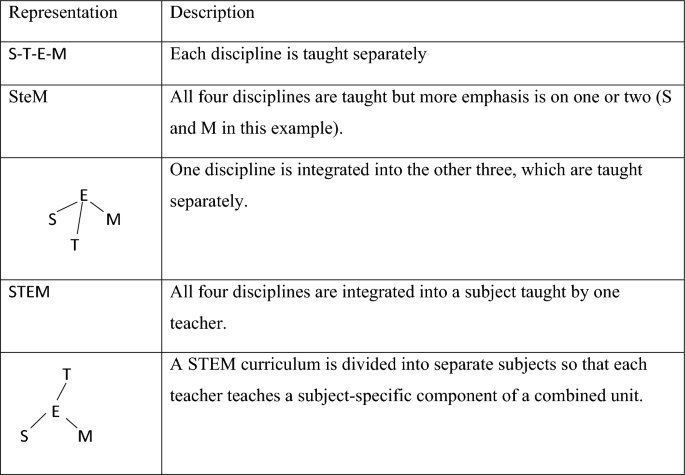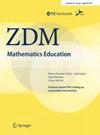数学和跨学科STEM教育:最新发展和未来方向
IF 2.4
2区 教育学
Q2 EDUCATION & EDUCATIONAL RESEARCH
引用次数: 0
摘要
这期特刊介绍了跨学科STEM教育中数学的最新研究。STEM教育被世界各国政府广泛推广,作为提高学生在科学、技术、工程和数学方面的兴趣和成就的一种方式,并为21世纪的职业生涯准备合格的STEM工人。然而,数学在STEM教育中的作用往往显得微不足道,我们也不太了解数学如何有助于基于STEM的问题解决,或者STEM教育经验如何增强学生的数学学习。在这篇调查论文中,我们对2017年至2022年间发表的实证和概念研究文献进行了叙述回顾。这些文献来源是由五个主题集群组成的框架组织的:(1)跨学科课程模型和方法;(2)学生成绩和经历;(3)教师准备和专业发展;(4)课堂实施与任务设计;(5)政策、结构和领导。在此框架下,我们对这期论文进行了综述,并提出了未来的研究方向。这些包括:研究连接STEM组成学科的方法和原理,以保持数学的学科完整性;澄清学生在跨学科STEM项目、项目和其他教育方法中的“成功”是什么意思;超越将数学仅仅定位为解决其他学科问题的工具的课堂实践;理解是什么让STEM任务在数学上丰富;并询问STEM教育研究如何有效地塑造STEM教育政策。本文章由计算机程序翻译,如有差异,请以英文原文为准。

Mathematics and interdisciplinary STEM education: recent developments and future directions
Abstract This special issue introduces recent research on mathematics in interdisciplinary STEM education. STEM education is widely promoted by governments around the world as a way of boosting students’ interest and achievement in science, technology, engineering, and mathematics and preparing STEM-qualified workers for twenty-first century careers. However, the role of mathematics in STEM education often appears to be marginal, and we do not understand well enough how mathematics contributes to STEM-based problem-solving or how STEM education experiences enhance students’ learning of mathematics. In this survey paper, we present a narrative review of empirical and conceptual research literature, published between 2017 and 2022. These literature sources are organised by a framework comprising five thematic clusters: (1) interdisciplinary curriculum models and approaches; (2) student outcomes and experiences; (3) teacher preparation and professional development; (4) classroom implementation and task design; and (5) policy, structures, and leadership. We use the framework to provide an overview of the papers in this issue and to propose directions for future research. These include: investigating methods and rationales for connecting the constituent STEM disciplines so as to preserve the disciplinary integrity of mathematics; clarifying what is meant by student “success” in interdisciplinary STEM programs, projects, and other educational approaches; moving beyond classroom practices that position mathematics as just a tool for solving problems in other disciplines; understanding what makes a STEM task mathematically rich; and asking how STEM education research can productively shape STEM education policy.
求助全文
通过发布文献求助,成功后即可免费获取论文全文。
去求助
来源期刊

Zdm-Mathematics Education
EDUCATION & EDUCATIONAL RESEARCH-
CiteScore
6.40
自引率
10.00%
发文量
124
期刊介绍:
ZDM – Mathematics Education is one of the oldest mathematics education research journals. The papers appearing in the seven themed issues per year are strictly by invitation only followed by internal peer review by the guest-editors and external review by invited experts. The journal exists to survey, discuss and extend current research-based and theoretical perspectives as well as to create a forum for critical analyses of issues within mathematics education. The audience is pre-dominantly mathematics education researchers around the world interested in current developments in the field.
 求助内容:
求助内容: 应助结果提醒方式:
应助结果提醒方式:


